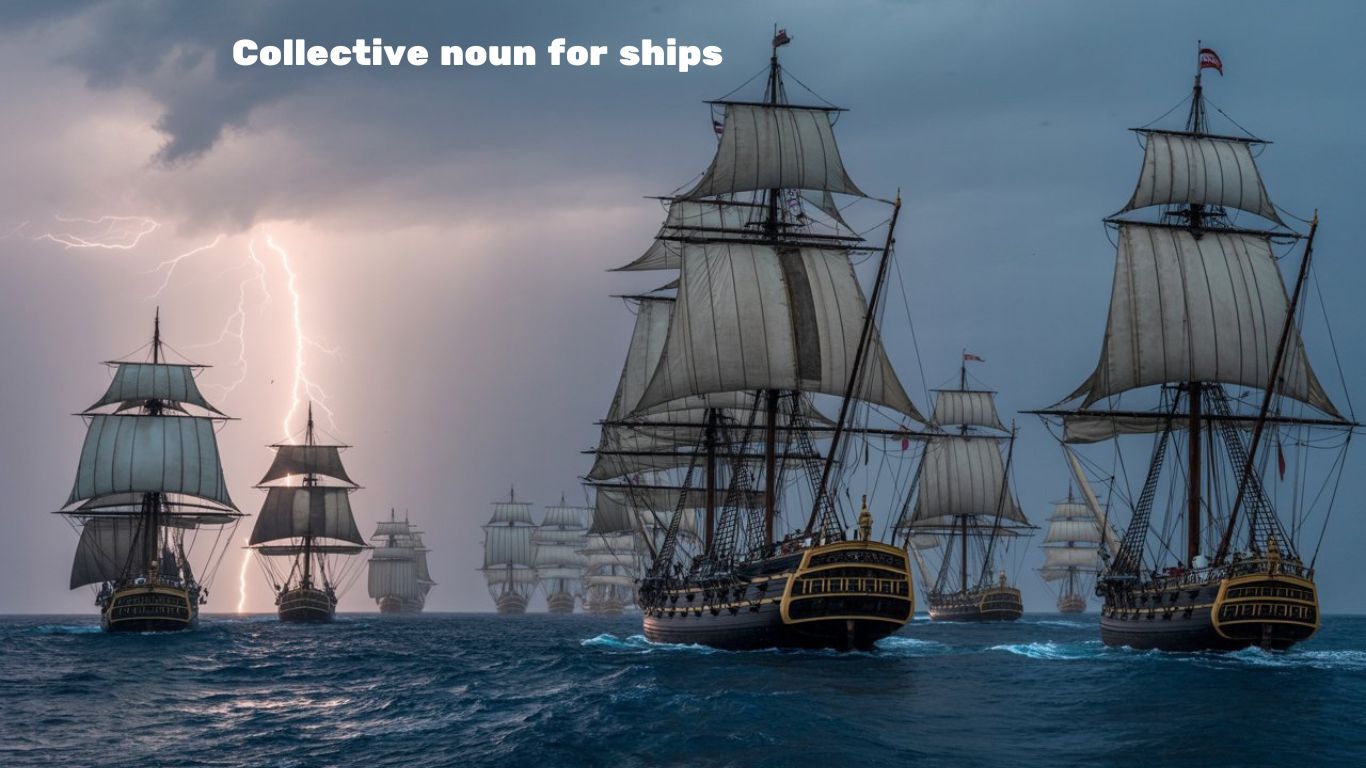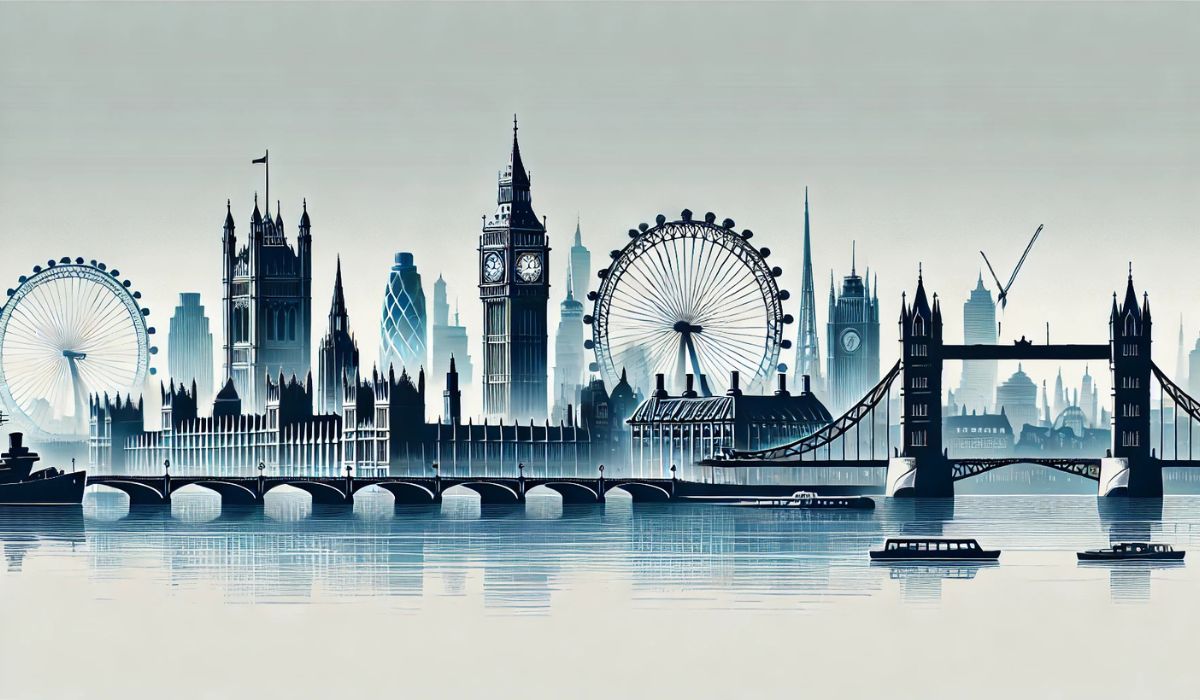Introduction
Have you ever heard someone say, “a fleet of ships” or “a pack of wolves”? These special phrases are called collective nouns. A collective noun is a word that names a group of people, animals, or things. Instead of saying “ten ships,” we can simply say “a fleet.” It’s a smart and easy way to describe a group without listing each item. In school and in writing, using the right collective noun makes your sentences clear and correct.
When I first started teaching English grammar to kids, I noticed how confused they got with group names. One student asked me, “Can I say a team of ships?” That moment helped me realize why it’s so important to learn the right terms early. Learning collective nouns not only improves your grammar, but also builds your confidence when speaking and writing. Knowing them helps you sound more fluent and professional.
In English, ships don’t have just one group name. The most common is fleet, but depending on the size or purpose of the ships, you might hear armada, flotilla, or even convoy. Each word tells you something different about the ships. For example, an “armada” sounds powerful and military-like, while a “flotilla” feels smaller and lighter. Understanding these different words gives your language more meaning and color.
What is a Collective Noun?
A collective noun is a word that names a group of people, animals, or things. For example, instead of saying “many birds,” we say a flock of birds. Instead of “lots of cows,” we say a herd of cows. And when we talk about players on one side, we say a team of players. These special words help us speak and write in a shorter and clearer way.
I remember helping one of my younger students who asked, “Why do we say a ‘herd of cows’ and not just ‘a lot of cows’?” I told her that collective nouns are like shortcut words that describe a full group. They also make your writing sound smoother and smarter. Saying “a fleet of ships” sounds better than saying “many ships.” It helps the reader understand your meaning more quickly.
Writers, teachers, and even news reporters use collective nouns all the time. These words help us describe things without repeating too much. Some common ones are bunch, group, team, fleet, and pack. Experts at Merriam-Webster and Cambridge Dictionary agree that collective nouns make our language easy to follow and fun to use. So, learning them is a great way to become better at English.
What is the Collective Noun for Ships?
The most common word used for a group of ships is fleet. When many ships travel or stay together, we call them a fleet. This word is used in schools, books, news, and by people who work with ships. For example, you can say, “A fleet of ships arrived at the harbor.” It’s a short way to talk about many ships without saying each one.
I remember watching a sea movie when I was younger. A big group of navy ships was coming across the ocean, and the captain said, “The enemy fleet is close!” That was the first time I heard the word fleet. I asked my teacher what it meant, and she told me it’s the word we use for a group of ships. After that, I started noticing it in books and news stories too.
Some people think crew or group can be used instead, but that’s not right. Crew means the people who work on the ship, not the ships themselves. Fleet is the correct word when talking about ships. Even trusted dictionaries like Merriam-Webster say that a fleet is “a group of ships sailing together.” So, if you’re talking about many ships, fleet is the best word to use.
Other Collective Nouns for Ships
Besides the word fleet, there are other words we can use to describe a group of ships. These words include armada, flotilla, convoy, and squadron. Each word tells us something different about the ships, like their size or why they are traveling together. Learning these words can help you understand stories, history books, or even movies better.
I remember reading about the Spanish Armada in a history book. I didn’t know what armada meant, so I asked my teacher. She told me it means a large group of warships. It’s often used when talking about sea battles or old-time wars. For example: “The Spanish Armada sailed toward England.” The word armada makes it sound strong and powerful.
A flotilla means a small group of boats or ships. It is usually used for rescue boats or light ships that help bigger ones. A convoy is when ships travel together to stay safe, especially during war or in bad weather. A squadron is a small group of navy ships, usually used in battles. These words help you say exactly what kind of ships you’re talking about.
Comparison Table: Other Collective Nouns for Ships
| Word | What It Means | Example Sentence |
|---|---|---|
| Armada | A large group of warships | The Spanish Armada sailed to England. |
| Flotilla | A small group of light or helper ships | A flotilla helped during the flood. |
| Convoy | Ships traveling together for safety | The convoy crossed the sea during the war. |
| Squadron | A small group of navy ships | A squadron moved into battle. |
These words are helpful when you want to be more clear and exact while talking or writing about ships.
Collective Noun for a Group of Three Ships
Some people ask, “What do we call a group of three ships?” There is no strict rule, but the word fleet can still be used. Even if there are only two or three ships, you can say a small fleet. Another word you might hear is squadron. This word is often used when the ships are part of a navy or doing a special job together.
I first saw the word squadron in a war story I read in school. It said, “A squadron of three ships guarded the coast.” That made me wonder why it wasn’t called a fleet. Later, my teacher explained that squadron means a small group of ships working as a team, usually in the military. So both words are correct—it just depends on the situation.
Even websites like Collins Dictionary say that fleet is the general word, and squadron is more formal. If you’re just talking about any group of ships, say fleet. But if they are navy ships or part of a mission, squadron is a better word.
Is “Crew” a Collective Noun for Ship?
The word crew is also a collective noun, but it means something different. Crew is used for the people who work on a ship, like the captain, sailors, and helpers. It does not mean the ship itself or a group of ships. So you can say, “The crew of the ship was ready,” but not “a crew of ships.”
Once, during a grammar class, a classmate said, “A crew of ships sailed away.” Our teacher smiled and said, “Not quite right.” She showed us that the crew is the team on board, not the ships. That helped me remember the difference.
Correct use: “The crew of the ship worked together.”
Wrong use: “A crew of ships arrived at the port.”
Learning the right words makes your writing and speaking more clear and correct.
Common Mistakes People Make
Many learners mix up the right group words when talking about ships. One common mistake is using words like tribe or shoal. These are incorrect. Tribe is used for people, like a group of families. Shoal is for fish, not ships. So, saying “a shoal of ships” is wrong—even if it sounds fun.
Another mistake I often see is when people use the word crew to talk about the ship itself. But remember, the crew means the people who work on the ship—not the ship. I once read a story where someone wrote, “A crew of ships sailed into the bay.” That sentence confused me until I realized the author should’ve said fleet or squadron. Using the right word makes your writing easier to understand and more accurate.
Even professional writers sometimes get this wrong. But trusted dictionaries like Cambridge and Oxford explain that collective nouns are specific. So, always double-check that you’re using the right one, especially when writing for school or sharing stories.
List of Collective Nouns Including Ships
Here’s a quick list of collective nouns that you can use when talking about ships or the people who work on them:
-
A fleet of ships
-
An armada of ships
-
A flotilla of ships
-
A convoy of ships
-
A squadron of ships
-
A crew of sailors (not ships)
This list helps you remember the right word for each group. Try using them in your writing or classwork to make your sentences stronger and more correct.
Fun Fact: Origins of These Terms
Did you know that the word fleet comes from the Old English word “fleotan,” which means to float? That makes sense—since ships float on water! This word has been used for hundreds of years to describe groups of sailing ships. Learning the root of a word can help you remember its meaning.
The word armada comes from Spanish and means armed. It was first used to talk about big groups of warships. You may have heard about the Spanish Armada, a huge fleet that sailed in the year 1588. These words didn’t just appear—they came from history and real use, which makes learning them even more interesting.
When I learned these facts in class, it made the words feel more real to me. It wasn’t just grammar—it was like learning a small piece of history with every word.
Final Thoughts on Collective Nouns for Ships
Learning the right collective noun for ships makes your English stronger and more fun to use. Words like fleet, armada, and convoy are not just grammar—they tell stories about history, teamwork, and sea adventures. When I first learned the word fleet, I started noticing it in books, movies, and even news reports. These words help us speak clearly and sound smart.
Whether you’re a student, a writer, or just someone curious about words, knowing these terms will help you a lot. And remember—fleet is the most common and correct word, but each noun adds its own special meaning.
For More More Visit: Creative Blog


